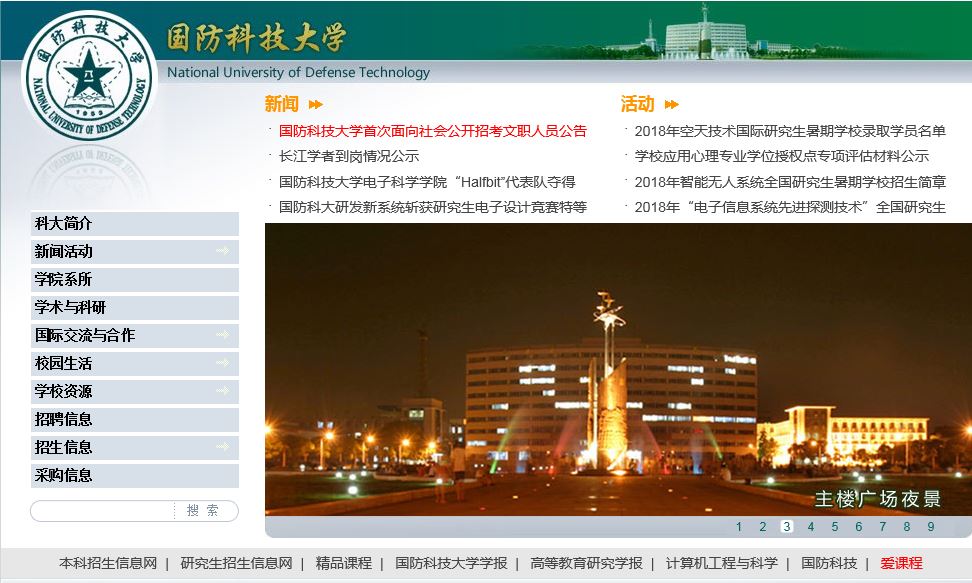选择热点
 荷兰莱顿大学
荷兰莱顿大学 西班牙巴塞罗那大学
西班牙巴塞罗那大学 巴西圣保罗大学 University of Sao Paulo, Brazil
巴西圣保罗大学 University of Sao Paulo, Brazil 台湾南华大学 University of South China in Taiwan
台湾南华大学 University of South China in Taiwan 科技大学 National University of Defense Technology
科技大学 National University of Defense Technology 南京大学 Nanjing University
南京大学 Nanjing University 上海复旦大学 Fudan University
上海复旦大学 Fudan University 泗水大学(Ubaya)
泗水大学(Ubaya) 印尼大学 universitas indonesia
印尼大学 universitas indonesia 越南某大学 Vietnam National University
越南某大学 Vietnam National University 菲律宾大学 University Of The Philippines
菲律宾大学 University Of The Philippines
游客前往新西兰须交手机密码
发布时间:2025-01-06
来源:大学网站
Visitors to New Zealand could face an unwelcome choice: relinquish your cell phone password, or pay a $3,000 fine.
去新西兰的游客或面临两难选择:提供手机密码,否则就要支付3000美元的罚款。
Travelers who refuse to provide the pass codes to their digital devices or unlock them with biometric data such as fingerprints will face fines of up to NZ$5,000 under New Zealand's new Customs and Excise Act of 2018, which came into effect on Oct 1.
根据10月1日起生效的新西兰 2018海关和消费税法 ,拒绝提供数字设备密码或用指纹等生物数据解锁设备的游客将最多被罚款5000纽元。
The law, which applies to both foreign visitors and New Zealand citizens, authorizes officials to demand "codes, passwords, and encryption keys" or other information required to access an electronic device.
该法律对外国游客和本国居民均适用,批准相关官员查问密码、口令和加密密钥”或访问电子设备所需的其他信息。
Officials must have a "reasonable cause to suspect" a device or its carrier to warrant a full digital search.
However, rights advocates have already raised alarms that the new law condones intrusions of privacy.
相关官员必须有合理的理由怀疑”某个设备或其运营商,以保证进行全面的数字搜索。
不过权利倡导者警告称,这一新法律是在允许侵犯隐私。
"Nowadays we've got everything on our phones; we've got all our personal life, all our doctors'records, our emails, absolutely everything," Council for Civil Liberties spokesperson Thomas Beagle told Radio New Zealand.
"Customs can take that and keep it.
"公民自由委员会的发言人托马斯·比格尔向新西兰广播电台透露:我们几乎所有东西都和手机有关,个人生活,甚至医疗记录,电子邮件,每个东西都离不开。
而海关现在可以拿走并储存这些信息。
”In a news release, Customs Department spokesperson Terry Brown said the new regulations would help improve border compliance, while assuring would-be tourists that "the traveling public is unlikely to notice much difference.
"在一篇新闻稿中,海关部门发言人特里·布朗称,这项新规定将有助于提高海关的服从性,同时向潜在游客保证,旅客不太可能注意到太多不同”。
【游客前往新西兰须交手机密码查看网站:[db:时间]】
去新西兰的游客或面临两难选择:提供手机密码,否则就要支付3000美元的罚款。
Travelers who refuse to provide the pass codes to their digital devices or unlock them with biometric data such as fingerprints will face fines of up to NZ$5,000 under New Zealand's new Customs and Excise Act of 2018, which came into effect on Oct 1.
根据10月1日起生效的新西兰 2018海关和消费税法 ,拒绝提供数字设备密码或用指纹等生物数据解锁设备的游客将最多被罚款5000纽元。
The law, which applies to both foreign visitors and New Zealand citizens, authorizes officials to demand "codes, passwords, and encryption keys" or other information required to access an electronic device.
该法律对外国游客和本国居民均适用,批准相关官员查问密码、口令和加密密钥”或访问电子设备所需的其他信息。
Officials must have a "reasonable cause to suspect" a device or its carrier to warrant a full digital search.
However, rights advocates have already raised alarms that the new law condones intrusions of privacy.
相关官员必须有合理的理由怀疑”某个设备或其运营商,以保证进行全面的数字搜索。
不过权利倡导者警告称,这一新法律是在允许侵犯隐私。
"Nowadays we've got everything on our phones; we've got all our personal life, all our doctors'records, our emails, absolutely everything," Council for Civil Liberties spokesperson Thomas Beagle told Radio New Zealand.
"Customs can take that and keep it.
"公民自由委员会的发言人托马斯·比格尔向新西兰广播电台透露:我们几乎所有东西都和手机有关,个人生活,甚至医疗记录,电子邮件,每个东西都离不开。
而海关现在可以拿走并储存这些信息。
”In a news release, Customs Department spokesperson Terry Brown said the new regulations would help improve border compliance, while assuring would-be tourists that "the traveling public is unlikely to notice much difference.
"在一篇新闻稿中,海关部门发言人特里·布朗称,这项新规定将有助于提高海关的服从性,同时向潜在游客保证,旅客不太可能注意到太多不同”。
【游客前往新西兰须交手机密码查看网站:[db:时间]】
- 上一篇: “哈佛学霸学习攻略”火遍社交媒体,作者竟是“虎妈”的女儿!
- 下一篇: 你见过最奇葩的密码是什么?
相关阅读
目录列表
资讯列表
英语资讯


共0条评论
网友评论温馨提示:您的评论需要经过审核才能显示,请文明发言!